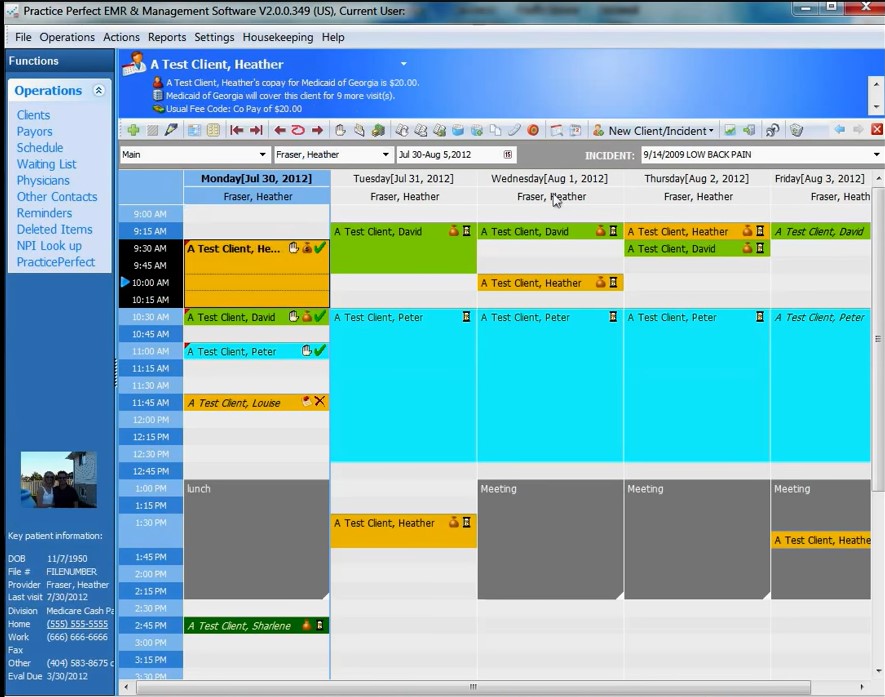This Complete Manual to Clinical Practice Software in Healthcare
Within today's fast-paced healthcare landscape, the effectiveness and efficiency of medical practices are increasingly vital than ever. As patient expectations rise and compliance requirements become increasingly complex, healthcare providers are turning to creative solutions to streamline their operations. One notable solution is practice management software, which has emerged as an indispensable tool for medical practices looking to improve their operations and enhance patient care.
Practice management software is built to handle multiple administrative tasks, enabling healthcare providers to focus more on patient interactions and less on paperwork. By automating scheduling, billing, and patient record management, this software diminishes the burden on staff, minimizes errors, and ultimately leads to a more efficient operation. As technology continues to advance, understanding how practice management software can transform healthcare delivery is crucial for providers aiming to thrive in a challenging landscape.
Key Features of Practice Management Software
A key notable features of practice management software is scheduling capabilities. This allows healthcare providers to effectively manage patient appointments for patients. With easy-to-use interfaces, staff can easily view the calendar, create new appointments, change existing ones, and even send automated notifications to patients. medicloudmed helps in minimizing no-show rates and ensures that the daily operations of the practice run seamlessly.
An additional essential feature is financial management and coding capabilities. Practice management software simplifies the financial processes by integrating billing systems that create invoices based on patient visits and procedures. Such integration not only decreases human error but also improves the correctness of coding for insurance claims. By facilitating quicker billing cycles, healthcare providers can enhance their cash flow while ensuring that patients receive timely and accurate statements.
Additionally, robust reporting and analytics tools are integral components of practice management software. Such tools enable healthcare organizations to analyze various metrics such as patient demographics, appointment trends, and financial performance. By analyzing this data, practices can spot areas for improvement, improve patient care, and make data-driven decisions that drive the growth and efficiency of the healthcare facility.
Advantages of Healthcare Practice Management Software in Healthcare

One of the main advantages of practice management software is its ability to simplify administrative processes. By streamlining tasks such as appointment scheduling, billing, and claims processing, healthcare practices can cut down on the time spent on routine operations. This streamlining not only enhances productivity but also minimizes the likelihood of mistakes, leading to enhanced accuracy in patient records and billing procedures.
Another significant benefit is the enhancement in patient experience. This software allows for easier communication between healthcare providers and clients, enabling features like online appointment booking, automatic reminders, and secure messaging. These functionalities empower clients to manage of their healthcare, leading to increased satisfaction levels and enhanced engagement in their own treatment plans.
Furthermore, this software provides important analytics and reporting tools that can help healthcare organizations make better decisions. By assessing trends in data related to the number of patients, financial performance, and resource usage, practices can identify areas for improvement and enhance their operations. This analytics-driven approach not only supports planning but also boosts the overall standard of care provided to clients.
Deciding the Appropriate Practice Management Software
Selecting the appropriate practice management software is essential for boosting productivity in healthcare settings. Commence by evaluating the specific needs and workflows of your medical practice. Different fields may require software that highlights specific functionalities, such as scheduling appointments for busy practices or billing features for those focused on financial processes. Include your team in discussions about their needs to make sure the software you choose aligns with everyday activities and boosts overall efficiency.
Moreover, think about the growth potential and compatibility capabilities of the software. As your practice grows or evolves, having a solution that can quickly adjust is critical. Seek out options that integrate seamlessly with existing platforms you utilize, such as electronic health records or remote care solutions. Powerful analytics capabilities are also important, as they provide data into practice performance and health outcomes, helping you make smart choices to enhance operations.
Finally, emphasize vendor support and training. A trustworthy vendor will provide ample customer support, making sure that your staff can troubleshoot issues quickly and effectively. Training resources, including user manuals and video tutorials, are important for helping your team make the best use of the software. Take time to review customer testimonials and seek out demonstrations to gauge ease of use and support quality before making your final selection.